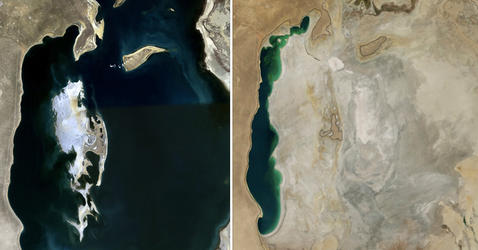You are here
Opinions
0 comments
Faced with the massive increase in the volume of information processed by data centres, Datazero research projects have been striving since 2015 to develop algorithms that can optimise their energy consumption and accessibility. The computer science researcher Jean-Marc Pierson initiated this programme to develop more environmentally friendly data centres.
Recent Opinions
04.26.2022
As we await the release of the prequel “House of the Dragon”, scheduled for this coming autumn, here are the answers to three questions that you might not have thought to ask about the cult...
04.18.2022
Faced with the blocking of numerous websites and control of social media orchestrated by the Kremlin, Ukrainians and Russian anti-war activists are resisting through decentralised messaging services...
04.13.2022
Faced with growing disruption to the water cycle, leading to severe flooding and drought together with increasing water pollution, humans are struggling to adapt. But are ever-greater water storage...
02.22.2022
The United Nations declared 2022 the International Year of Glass, whose official launch took place on 10 and 11 February in Geneva, Switzerland. Researcher Daniel Neuville provides a brief yet eye-...
02.16.2022
Computer scientist and mathematician Jean-Paul Delahaye explains why Bitcoin’s electricity consumption is a major flaw that should result in it being banned or replaced by less energy-intensive...
01.17.2022
Rapid improvements in deepfake technology, which modifies a person's appearance or voice in real time, call for an ethical review at this still early stage. Researchers in cognitive science shed...








